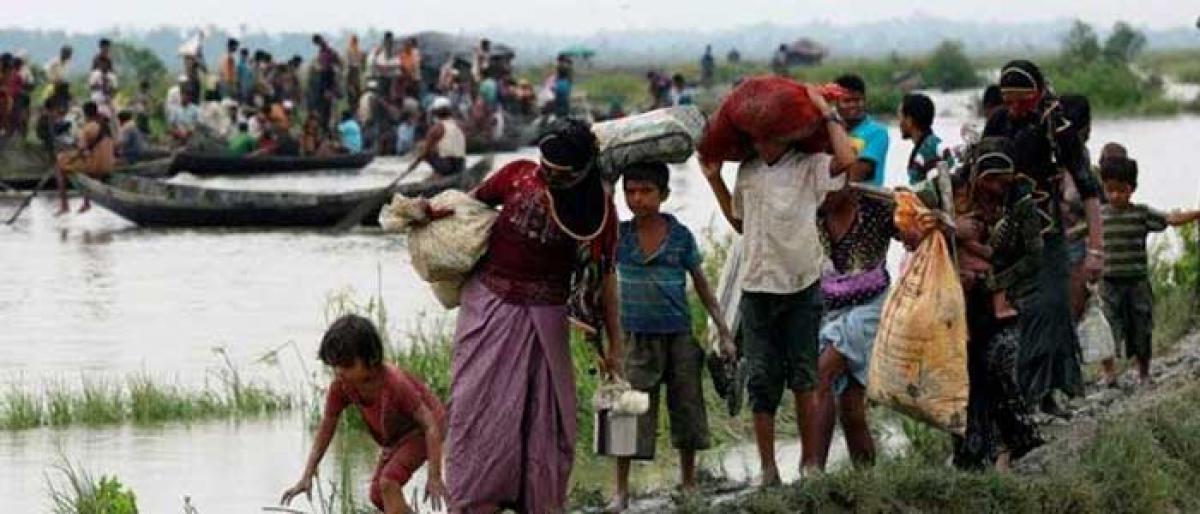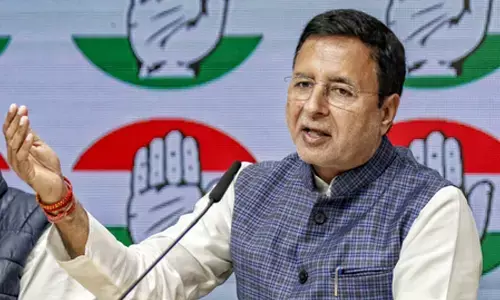Rohingyas: To keep them or not?

Surely, it must be connected in some way to the history of the north east, but the only time that you hear of Arakans in the history of mainland India is in the context of Mughal prince Shuja. After Aurungzeb deposed father Shah Jahan in 1657 and killed brothers Dara Shikoh and Murad, he went after Shuja. The hunted Shuja – who was governor of Bengal based out of Dhaka – escaped to Arakans where h
Surely, it must be connected in some way to the history of the north east, but the only time that you hear of Arakans in the history of mainland India is in the context of Mughal prince Shuja. After Aurungzeb deposed father Shah Jahan in 1657 and killed brothers Dara Shikoh and Murad, he went after Shuja. The hunted Shuja – who was governor of Bengal based out of Dhaka – escaped to Arakans where he was betrayed. Arakans is the old name for Rakhine province of Myanmar and the Rohingyas about whom much is written about these days originate from here.
It is not surprising that the Government of India (GOI) does not want to keep the 40,000 Rohingya refugees who have taken shelter in India. Rohingyas come from a land that is so distant from the Indian sub-conscious that their name evokes little sensitivity in this part of the world. With GOI’s assertions (via a Home Ministry advisory) that: ‘Infiltration from Rakhine state of Myanmar into Indian territory besides being a burden on the limited resources of the country also aggravates the security threat posed to the country,’ not many Indians are comfortable with having the Rohingyas in this country.
This is especially as the Indian experience with Bangladeshi refugees has not been very good. Infiltration of Bangladeshis has changed the demography of the border districts of West Bengal leading to considerable angst amongst the local population. In fact, political pundits swear that the policies of the Government of West Bengal are often tailored to cater to the refugees. Most of these refugees have over the years obtained ration cards and voter identity cards and have become Indian citizens. Though the number of Rohingyas crossing over is much lower, there are fears that some of them will get radicalised or already have. The fact that some of them have illegally procured citizenship papers only adds to the fears.
Rohingyas are Bengali speaking – having migrated to the Arakans from districts of present day Bangladesh during the British period. They were encouraged by the British rulers to emigrate so that they could settle on the land and intensify farming. This was at the same time when Bengali farmers in East Bengal were also encouraged to settle in Assam – again with the same purpose of intensifying farming. But just as in Assam there has been considerable angst about Bengali peasant settlements, similarly in Myanmar there have been tensions with local population.
This has been more so because of the demand made by the Rohingyas in early 1948 to create a separate homeland and merge it into the then East Pakistan. The attempt did not work out but left a permanent gulf. In 1982 when the Burma Citizenship Law was given effect to, there was no place for Rohingyas. A Rohingya was eligible to citizenship only if he were able to provide proof that his ancestors lived in Burma before 1823.
Otherwise, they were treated as ‘resident foreigners’ or ‘associated citizens’ (even if one of the parents were Myanmarese). The Rohingyas were also restricted to the Rakhine province, which is the new name for Arakans. There were 10 lakh Rohingyas to start with but with these regulations only 40,000 were able to get citizenship. The military junta – that ruled Myanmar for many years was accused of ethnic cleansing of Rohingyas by the United Nations – forced a lot of the latter to flee to Bangladesh in the 1970s. Similar to the foreigners issue in Assam, Myanmar also does not want Rohingyas whom they treat as foreigners.
Sectarian violence between Rohingyas and Rakhins erupted in a new form after democracy was brought back to the country in 2011. Trouble began in June 2012 and it started with the rape and murder of a Rakhine woman in a Rohingya dominated locality. There were major riots that raged for a month, and another round broke out in October 2012. This triggered an exodus of Rohingyas from Myanmar: half a million of them had to move to refugee camps. Many of them sought asylum in Thailand, Philippines, Indonesia and Malaysia and most of them entered Bangladesh. Via the Bangladesh route some 40,000 have entered India including places as far as Jammu and Hyderabad.
The ethnic violence was contained in 2013 after military intervention but re- erupted on August 25 this year after militants coordinated attacks on 30 police posts and an army camp in Rakhine state. The Arakan Rohingya Salvation Army (ARSA) claimed responsibility for triggering off the trouble. The ARSA which is a regular armed guerilla outfit is fighting for a ‘democratic Muslim state of Rohingya.’ The attack of ARSA which brought forth swift action by the military has resulted in torching of villages, civilian deaths and Rohingya youth being picked up.
Most surely it led to human rights abuses and also resulted in a heavy exodus of refugees to Bangladesh: since late 2016, 87,000 Rohingyas have fled Myanmar and entered Bangladesh. With already 5 lakh refugees taking shelter, Bangladesh is in no position to take any more refugees. After the military action, the Rohingyas are being termed by the international community as the world’s most persecuted religious minority without any homeland. But even in spite of these appellations, the government in Burma is unwilling to soften their stand towards the Rohingyas.
Nobel Prize winner Aung San Sui Kyi, the chancellor and de-facto ruler of Myanmar – once a darling of the international community has got a bad name for the treatment meted out to Rohingyas but the fact of the matter is that she has no control over the military. She has now said that verified refugees – those Rohingyas who can prove that they were originally from Rakhine province – will be taken back.
She also said that the military has been asked to follow a code of conduct and to exercise caution and avoid collateral damage. But this is a chastened Aung speaking out after international condemnation. It is quite likely that the pressure on Rohingyas will not be eased and those who had have crossed over to other countries will never be taken back branded as they are as terrorists. This would include the 40,000 Rohingyas in India.
The Rohingyas themselves however say that they are stateless and hapless refugees, the nowhere people with no place to call home. Although India has been a sanctuary for international refugees from times immemorial, the country does not have a concrete policy towards refugees. Neither is it a signatory to the various UN conventions on refugees. There is now a suggestion that in view of this crisis, India should enunciate a policy for refugees.
This apart, what does India do with the Rohingya refugees? On humanitarian grounds India should allow the Rohingyas who are already in this country to remain here. But with fears of radicalisation and some of their ranks been infiltrated by terrorist groups, this is not a safe option.
So, it’s a devil and deep blue sea option for India: it expels the refugees (with no guarantee that they will be accepted where they are being sent to), the country will be accused of lack of humanitarianism. On the other hand, if the refugees are accepted and given rights, there will always be a potential fear about what some of them will do in the future.











